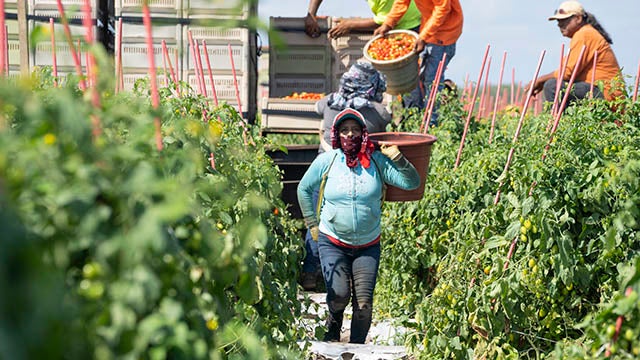Immigrant and migrant farm workers play a critically important role in putting food on our nation’s tables, making up an estimated 73% of the agricultural workforce in the United States today. Despite this outsize role in shoring up the national food supply, food insecurity is endemic in the migrant farming community: one recent study of Georgia farmworkers found that 63% of migrant and seasonal workers surveyed struggled to feed themselves and their families, and another in Northern California revealed that farmworkers—particularly those that are undocumented—depend on emergency food as their main food source. Immigrant and migrant farm workers face extraordinary barriers to economic mobility, and they are often rendered invisible by institutions with the power to address unequal and exploitative working conditions. Undocumented workers—who make up approximately 50% of the farm labor workforce—are particularly vulnerable, as they live under the constant threat of arrest and family separation, all while working in extremely difficult and oftentimes dangerous conditions that have only been made more so by the COVID-19 pandemic and the ravages of climate change.
In this session, we’ll discuss the social, economic, and structural barriers that exploit immigrant and migrant farm workers and push families to the margins. We’ll also hear from the people and organizations who are forging a new vision for an agricultural industry that values the land, and the people who tend to it. Finally, we’ll examine why improving the conditions of farm workers should be a legal, economic, and moral imperative for all of us.
Featured Speakers
Greg Asbed, Co-Founder at Coalition Of Immokalee Workers
Pakou Hang, Hmong American Farmers Association
Emma Torres, MSW, Founder and Chief Executive Officer, Campesinos Sin Fronteras
Mily Treviño-Sauceda, Executive Director and Co-Founder, Alianza Nacional de Campesinas
Moderated by Russell Contreras, Justice and Race reporter at Axios

